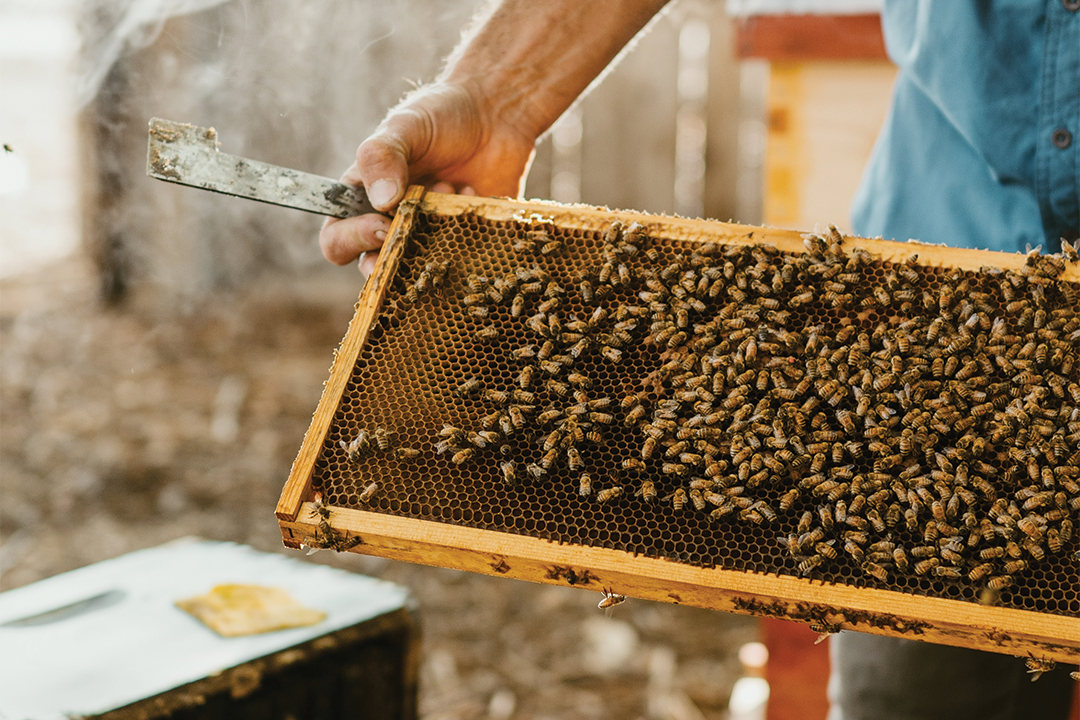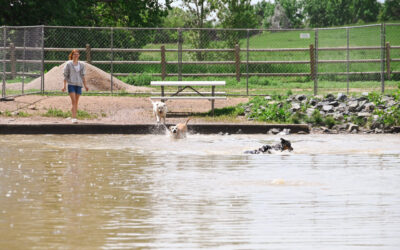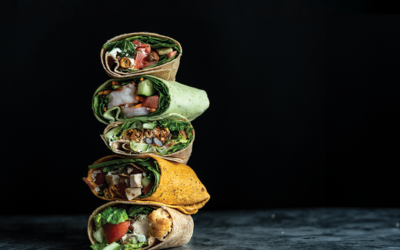Across Northern Colorado, bees are quietly at work crafting liquid gold. And behind each jar of honey they produce is a dedicated beekeeper.
From the award-winning infusions of Bee Squared Apiaries in Berthoud to the small-batch flavors of BC Honey Hives in Windsor and the breeding innovations at Copoco’s Honey in Fort Collins, these local apiarists are as diverse as their honeys. What they share is a reverence for the hive—and a desire to share that reverence with the rest of us.

Beth Conrey, Bee Squared Apiaries.
Bee Squared Apiaries, Berthoud
For Beth Conrey, bees aren’t just a business—they’re a calling. Currently in her 20th year running Bee Squared Apiaries, the former president of the Colorado Beekeepers Association, Western Apicultural Society and Northern Colorado Beekeepers Association manages 200 hives from Denver to Wellington.
In addition to traditional flavors like clover and alfalfa wildflower, Bee Squared offers a line of infused honeys that are produced by mixing an infusing agent, such as chili peppers or rose petals, with the honey and letting the mixture rest for weeks or months before removing the agent and bottling the honey.
“We offer the same varietals many local producers do,” Conrey says, “but what sets us apart are our national awards and our commitment to the greater good.”
Living up to the tagline, “We bee exponentially better,” Bee Squared donates a portion of all sales to environmental nonprofits. They also partner with Repurpose Global, a program that tackles plastic waste in underserved communities.
That commitment has earned Bee Squared four Good Food Foundation Awards recognizing them for their flavors and sustainability. Their rose petal-infused honey took top honors in 2016, followed by a whiskey barrel-aged honey in 2020, fennel pollen honey in 2022 and sea salt caramel honey in 2024.
Their eight infused honeys include flavors like espresso, summer peach and vanilla saffron and are available online and at retailers throughout Northern Colorado. Aside from liquid honey, they offer comb honey, beeswax candles, custom gifts and a “Health from the Hive” line of body and wellness products.
Apiary tours run by appointment only and begin this month, offering a behind-the-scenes look at the world of beekeeping. Proceeds from the tours benefit the People and Pollinators Action Network, a pollinator protection organization Conrey co-founded.
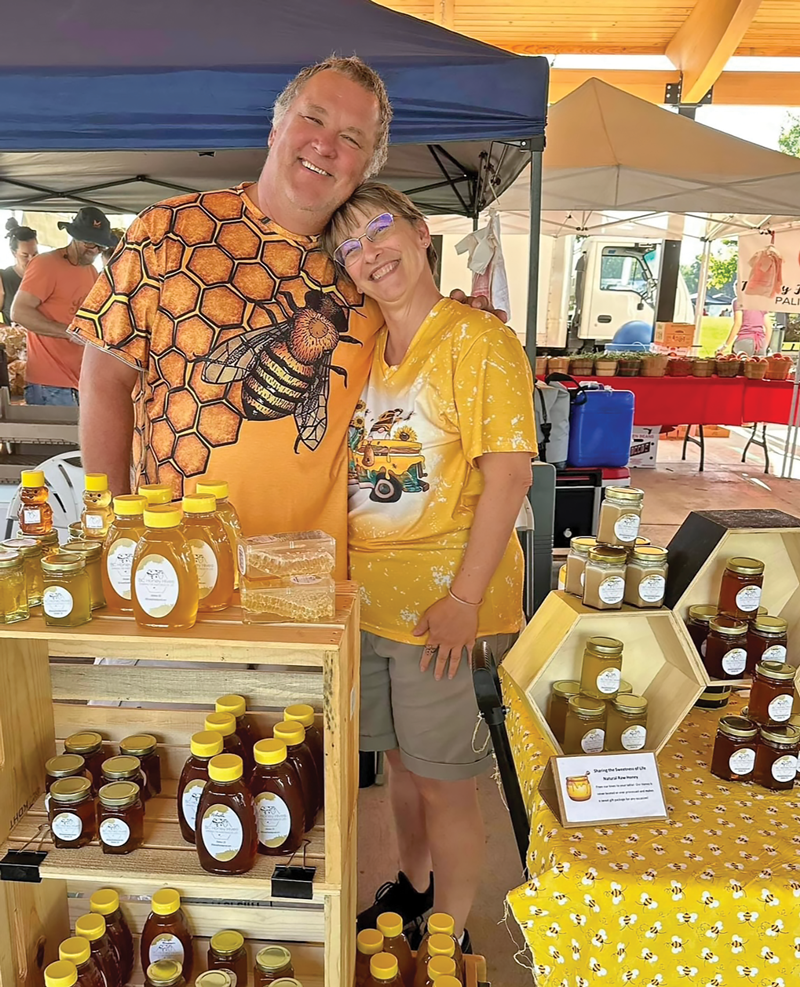
Robert and Sheri Bishop-Cotner, BC Honey Hives.
BC Honey Hives, Windsor
When Robert Bishop-Cotner’s son, Robert Jr., left for culinary school 11 years ago, Bishop-Cotner’s wife, Sheri, signed him up for a beekeeping class. He now operates 300 hives across Northern Colorado.
“We started with two hives,” Bishop-Cotner says. “Now it’s a full family business. We’re real people who are passionate about the bees and the work they do. Every jar of honey tells a story.”
BC Honey Hives produces a variety of raw, unfiltered honeys harvested separately for true small-batch flavor. This process keeps key nutrients intact, which are lost in the pasteurization process utilized by many large-scale producers.
Bishop-Cotner’s pride and joy, though, is the company’s line of creamed and infused honeys, developed in collaboration with Robert Jr. Best sellers include a creamed lemon honey made with alfalfa honey and lemon zest that, to Bishop-Cotner, tastes “like a lemon bar in a jar,” and a cinnamon creamed honey that he says evokes memories of cinnamon rolls from Johnson’s Corner.
The family also offers freeze-dried strawberry honey, habanero-infused honey and limited runs of citrus and blackberry honeys from pollination trips to California. This year, they launched a CSA providing members with monthly honey deliveries and product discounts from August through January.
BC Honey Hives embodies its motto, “sharing the sweetness of life,” in more ways than one. Bishop-Cotner, a U.S. Army veteran, works with VA clinics across Colorado and Wyoming to place bee hives onsite.
“Working with bees is meditative,” he says. “For veterans with PTSD, it can be life-changing.”
In May and June, the family offers hands-on tours by appointment.
“People get lost in the bees,” Bishop-Cotner says. “You feel their energy, smell the hive, hear the hum—it’s like stepping into another world.”
BC Honey Hives’ products can be found online, at Mini Macarons Bakery in Windsor and at The Artisan Shop & Studio in Loveland.

Ben Gilmore, Copoco’s Honey. Photo by Abigail Fountain, Stoked Ember Productions.
Copoco’s Honey, Fort Collins
The name Copoco stands for Colorado Pollination Company, but for owner Ben Gilmore, it also symbolizes a journey—one that started with 1,500 colonies and an unexpected phone call.
“I had always had an interest in honeybees, and in 2003, when a friend’s father passed away, she asked if I’d be interested in helping run his honey harvesting operation,” Gilmore says. “That’s when I realized that beekeeping was my calling.”
Gilmore and his brother launched their own business relocating swarms and rescuing hives in 2004 under the name Bee Busters. Today, Gilmore runs Copoco’s on his own with help from his family. They manage hives in Rist Canyon, Wellington and the surrounding areas.
Gilmore also hosts colonies in public parks in Fort Collins through an agreement with the city. The bees serve to increase ecological and pollinator awareness and act as environmental health indicators. Healthy bees equal a healthy habitat.
But what really sets Copoco’s apart is its breeding program. Gilmore raises his own queens from Colorado stock, ensuring the bees are winter-hardy and suited to local conditions.
“We try to raise our honey in the most humane and natural way possible,” Gilmore says. “No synthetic pesticides ever.”
Copoco’s honeys range from clover and sunflower to linden and seasonal wildflower, and its infused line features 12 rotating flavors, including cinnamon, blueberry and coconut cream. They also carry a creamy, spreadable honey that never hardens.
“Our linden honey is definitely my favorite,” Gilmore says. “Although the orange blossom honey, which we’re able to produce by sending our bees to California to collect nectar from orange tree blossoms each year, is a close second.”
In addition to their edible products, they offer beginner beekeeping classes, group tours and a line of lip balms, salves, lotions and candles. Along with their retail store in Fort Collins, Copoco’s products can be found at Lucky’s Market, Overland Foods and online.
Honey Recipes From Local Beekeepers
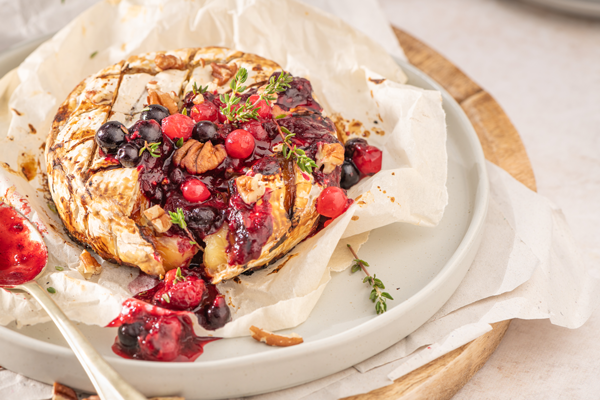
Honey and Berry Brie
Courtesy of BC Honey Hives
1. Preheat oven to 375° F.
2. In a small bowl, combine ½ cup blueberries, blackberries or raspberries and 1 tablespoon BC Honey Hives honey. Mash together to desired consistency. Add 1 tablespoon nuts.
3. Place 1 creme brie in the freezer for 10 minutes to chill. Using a small cookie cutter, press down on the center to remove a portion of brie. Fill the center space with the mixture.
4. Bake for 15-20 minutes until the brie is oozing/creamy.
5. Drizzle with 1 teaspoon honey before serving.
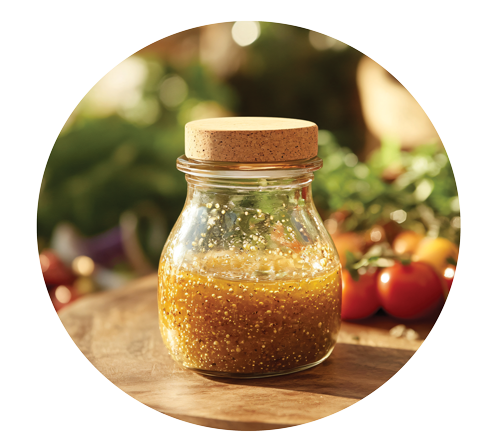
Quick Honey Vinaigrette
Courtesy of Copoco’s Honey
1. Whisk 1 tablespoon Copoco’s raw or creamed honey, 1 tablespoon vinegar and 3 tablespoons olive oil together.
2. Season with salt and pepper to taste.
3. Shake it up and pour over your favorite greens.
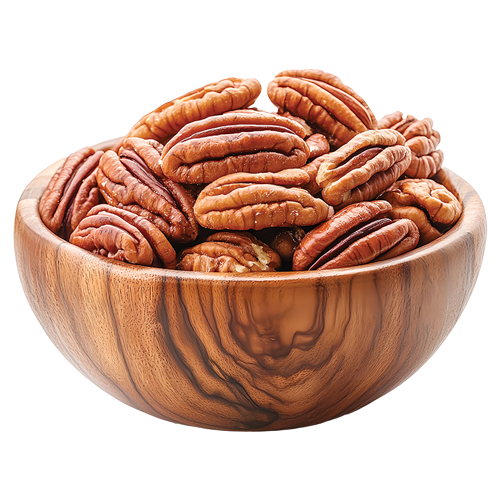
Sweet and Spicy Nuts
Courtesy of Bee Squared Apiaries, adapted from Sugar in the Raw recipe
1. Preheat oven to 350° F.
2. Line a large, rimmed baking sheet with foil.
3. Warm ½ cup plus 2 tablespoons Bee Squared honey and 1 tablespoon water, but do not bring to a boil. Mix well and cool to room temperature.
4. In a small bowl, combine ½ cup Sugar in the Raw, 1 teaspoon cumin, ½ teaspoon cinnamon, 1/8 teaspoon cloves, 1/8 teaspoon cayenne pepper and ½ teaspoon salt.
5. In a large mixing bowl, combine honey syrup and 1 pound fancy pecan halves. Toss well until the nuts are thoroughly coated and there is no syrup in the bottom of the bowl.
6. Add the spice mix to the nuts and toss quickly and thoroughly.
7. Spread the nut mixture on the foil-lined sheet pan and bake for 5 minutes.
8. Remove from oven and separate the nuts with a spoon.
Sprinkle with the remaining 2 tablespoons Sugar in the Raw.
9. Continue baking for 5-7 minutes until the nuts are browned
and crystallized.
10. Let cool. Store in an airtight container.


